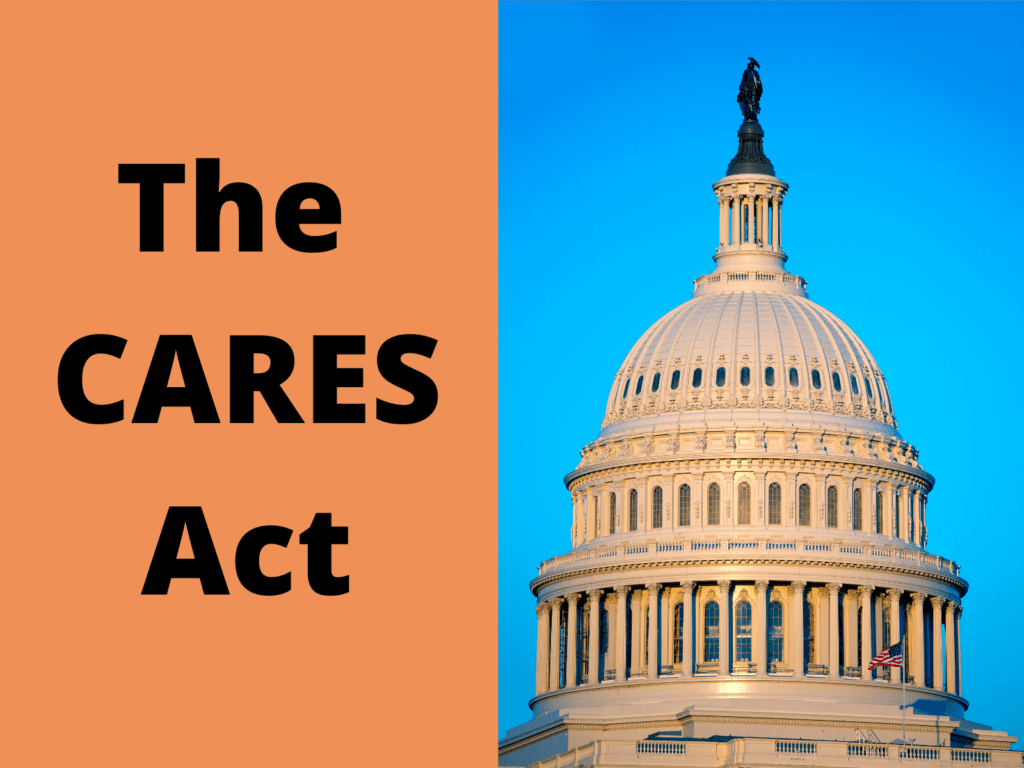
The CARES Act was passed on March 27, 2020 to provide economic stimulus and relief related to the COVID-19 pandemic. As a result, our typical monthly tax tips have changed remarkably, least of all that the 2020 filing deadline for individuals and deadline for paying first quarter 2020 estimated taxes have both moved to July 15, 2020.
The rollout of other relief provisions like the Small Business Association (SBA) loan program for wages, rents, and utilities may take several weeks to be up and running. Here is a list of CARES Act provisions that I believe to be particularly applicable to small businesses, such as medical practices and individual taxpayers:
- Recovery rebates of $1,200 (single taxpayers), $2,400 (married taxpayers), and $500 per child. The payments ratchet down once income hits $75,000 (single) and $150,000 (married) and go away completely for taxpayers with income over $99,000 (single) and $198,000 (married). The IRS will pull income from your 2018 federal return to determine eligibility unless you have already filed for 2019, in which case. If you’re on the bubble and 2019 income was higher, hold off filing your 2019 return until those checks (or direct deposits) go out.
- Waiver of 10% early withdrawal penalty on distributions up to $100,000 from qualified retirement accounts for coronavirus-related purposes. The purposes include a COVID-19 diagnosis (you, your spouse or dependent) or adverse financial circumstances relating to the virus. Noted financial factors include being laid off from employment, a work-hour reduction, taking unpaid or reduced pay leave for childcare issues, closing or scaling back of a business you own or operate. (Note: I assume this applies to all retirement accounts, but I do not know this for sure.)
- Income recognition on coronavirus-related retirement distributions over three years. Taxpayers can avoid the income recognition altogether if the funds are recontributed within the three-year period. I need more information on how exactly this would work. My opinion is invading your retirement account should be among your last options for weathering this storm, especially given the beating that your account has likely taken over the past six weeks or so. Still, this flexibility is encouraging.
- Required minimum distribution (RMD) suspension for 2020. If you take RMDs, you know that the distribution is based on the account value at the end of the previous year. If you have lost 30% of your account value since then, you know what a financial hardship an RMD in 2020 could be.
- Charitable contributions available even if you don’t itemize. You can deduct up to $300 of charitable contributions even if you claim the standard deduction on your return.
- Charitable contributions deduction limitation lifted for 2020. You may know that, ordinarily, you can only deduct cash contributions up to 60% of your income every year. Contributions over that amount carry forward and may be deducted in future years. This 60% deduction limitation has been lifted for 2020, meaning you could effectively wipe out your taxable income if you gave it all to a qualifying charity.
- Refundable payroll tax credit up to 50% of wages paid by employers during the crisis. The credit is available to businesses that have been fully or partially suspended by COVID-19 or whose gross receipts have declined by more than 50% compared to the same quarter last year. “Creditable” wages are those paid between March 13, 2020 and the end of the year and are limited to the first $10,000 of compensation per employee. I have more questions than answers at this point, especially as it relates to other employment-related provisions (like the SBA Paycheck Protection Loans), so stay tuned for more information on this provision later.
- Delay on paying employer payroll taxes. Businesses and self-employed individuals can delay paying the employer-side payroll taxes (the 6.2% Social Security tax) until 2021 when one-half is due, and 2022, when the other half is due. Personal opinion here, this seems messy and easy to foul up. Moreover, businesses and self-employed individuals will need to remember to budget for these deferred taxes. If you are considering taking advantage of this benefit, I would encourage you to consider using a payroll service if you are not already doing so.
This bill is massive, and I have not attempted to cover all of the provisions. I will post again with more technical guidance when the details come into sharper focus.
Follow us on Twitter, Facebook, and LinkedIn to join the conversation about growing your practice.



… [Trackback]
[…] Information to that Topic: smartbusinessgreatmedicine.com/how-will-the-cares-act-affect-you/ […]